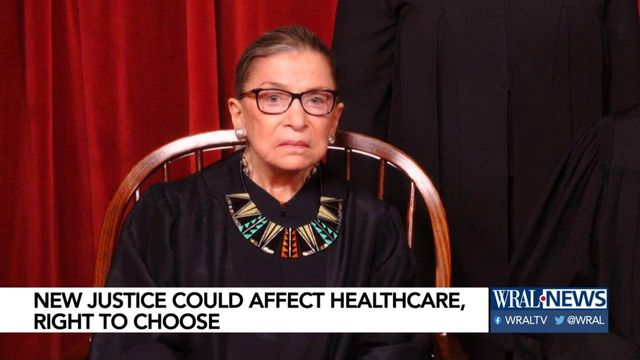Poll: Majority of adults don't want Roe v. Wade overturned
A majority of American adults say they do not support the Supreme Court completely overturning Roe v. Wade.
Posted — UpdatedWASHINGTON — A majority of American adults say they do not support the Supreme Court completely overturning Roe v. Wade, according to new data from the NBC News|SurveyMonkey Weekly Tracking Poll.
Sixty-six percent of adults say that they don’t believe the Supreme Court should completely overturn the decision that established a woman’s right to an abortion in at least the first three months of a pregnancy. Twenty-nine percent of adults say they do want the Court to completely overturn the ruling.
The landmark 1973 decision found that a woman’s constitutional right to privacy protected their choice of whether to have an abortion, although it also allowed states to more heavily regulate abortion access after the first trimester.
Prior to the 1973 decision, states were largely unrestricted in their ability to regulate abortion access at any point in a pregnancy.
Democrats are overwhelmingly in favor of preserving the decision — 86 percent say it should not be overturned while 12 percent believe Roe should be overturned.
Independents feel similarly — 71 percent want to preserve the ruling, while 25 percent want to see Roe overturned.
Republicans are virtually split, with 50 percent supporting a decision that would overturn Roe and 47 percent saying it should not be overturned.
This data comes after President Trump nominated Judge Amy Coney Barrett to the Supreme Court seat left vacant after the death of Associate Supreme Court Justice Ruth Bader Ginsburg. That nomination has sparked questions about whether a more conservative-leaning Court could re-examine issues like abortion – President Trump has said he would only nominate pro-life judges to sit on the Court.
In a 2013 article in the Texas Law Review, Barrett cited Roe v. Wade when she wrote, “If anything, the public response to controversial cases like Roe (v. Wade) reflects public rejection of the proposition that (precedent) can declare a permanent victor in a divisive constitutional struggle rather than desire that precedent remain forever unchanging.”
Barrett, however, has said that she doesn’t believe the Supreme Court would ever fully overturn abortion rights – rather, the Court may change how much power states have in regulating abortions.
During a speech at the University of Notre Dame in 2013, Barrett said, “The fundamental element, that the woman has a right to choose abortion, will probably stand.” And in 2016 she said, “I don’t think abortion or the right to abortion would change. I think some of the restrictions would change.”
After nominating Barrett, Trump said in a Fox and Friends interview that with Barrett on the Court, overturning Roe v. Wade was possible.
“It’s certainly possible. And maybe they do it in a different way. Maybe they’d give it back to the states. You just don’t know what’s going to happen,” he said.
Many conservatives have pushed for the Court to re-examine Roe — Missouri Republican Sen. Josh Hawley tweeted earlier this month that he would only vote for Supreme Court nominees who believe “Roe was wrongly decided.”
And several states have tried to limit abortion access by pushing for so-called “heartbeat” laws and regulations on abortion clinics.
The new data tracks with other polls that show the majority of Americans don’t want to see Roe v. Wade completely overturned and generally agree with a women’s right to have an abortion with certain restrictions.
Barrett’s nomination to the Supreme Court also comes with controversy related to the timing of the pick. Last week, a Washington Post/ABC News poll found that 57 percent of Americans thought the candidate who wins the Nov. 3 election should fill the vacant Court seat. And two NBC News/Marist College polls showed a majority of likely voters in Michigan and Wisconsin agreed that the presidential election winner should make the nomination.
The chair of the Senate Judiciary Committee, South Carolina Sen. Lindsey Graham, announced that Barrett’s confirmation hearings would begin Oct. 12 – just 22 days before the presidential election. Republicans have drawn ire from Democrats for moving forward with the nomination and confirmation process this close to the election after blocking former President Barack Obama’s nomination of Merrick Garland in March 2016.
While Democrats have promised to try and block Barrett’s confirmation, only two Republican senators – Maine Sen. Susan Collins and Alaska Sen. Lisa Murkowski – have joined with them to say a nominee should not be confirmed until after the election, so there’s little Democrats can do to delay the process.
Related Topics
• Credits
Copyright 2024 NBC News. All rights reserved. This material may not be published, broadcast, rewritten or redistributed.





